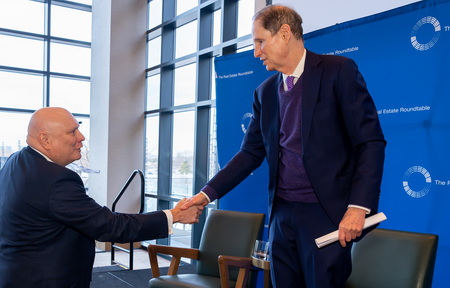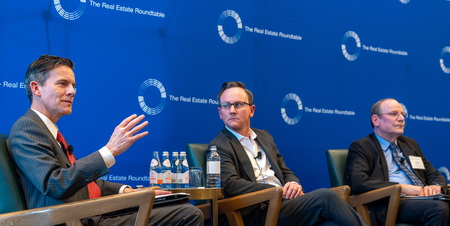
On Thursday, the Supreme Court ruled 7-2 to uphold the constitutionality of mandatory repatriation tax (MRT) enacted in 2017, but chose to sidestep and not rule on the issue of whether the Constitution imposes a realization requirement on the taxation of income. (Moore v. United States)
Background & The Decision
- The petitioners in Moore argued that the MRT exceeds Congress’s authority under the 16th Amendment to lay and collect taxes on income. The Moore’s were shareholders of a foreign corporation. The corporation never distributed its earnings, but the MRT taxed the Moore’s on their deemed share of the corporation’s income. The Moore’s argued that the federal government could not tax them on income they never realized. (Roundtable Weekly, Oct. 13)
- A decision in favor of the Moore’s could have important consequences for both legislative proposals to tax unrealized gains, but also existing aspects of the tax code and pass-through taxation.
- The Ninth Circuit ruled against the Moore’s on the grounds that there is no realization requirement in the Constitution.
- The Roundtable has consistently opposed proposals to tax unrealized gains on several grounds, including their constitutionality and the damage they would cause to the economy, entrepreneurship, and productive investment.
- The Supreme Court, in a decision authored by Justice Brett Kavanaugh, stepped back from the sweeping holding by Ninth Circuit and concluded that it did not need to rule on the realization question because the foreign company’s operating income was clearly “realized” by the foreign company. In passing the MRT, Congress was simply attributing (or passing through) that income to its U.S. shareholders.
- The 7-2 opinion by Justice Kavanagh was accompanied by two concurring opinions, one from Justice Jackson and one from Justice Barrett (joined by Justice Alito). Justices Thomas and Gorsuch dissented.
- While the Real Estate Roundtable’s Tax Policy Advisory Committee (TPAC) and its members are still parsing the language of the various opinions to understand the broader implications, at the end of the day, there appear to be at least four justices willing to uphold a realization requirement (Barrett, Alito, Thomas, and Gorsuch), one justice prepared to hold that realization is not required (Jackson), and four justices who have not yet tipped their hand (Kavanaugh, Roberts, Sotomayor, and Kagan). See analysis of Moore decision by TPAC member Don Susswein (Principal, RSM US LLP)
The Moore ruling is unlikely the last word in the heated debate over the constitutionality of taxing unrealized gains.


